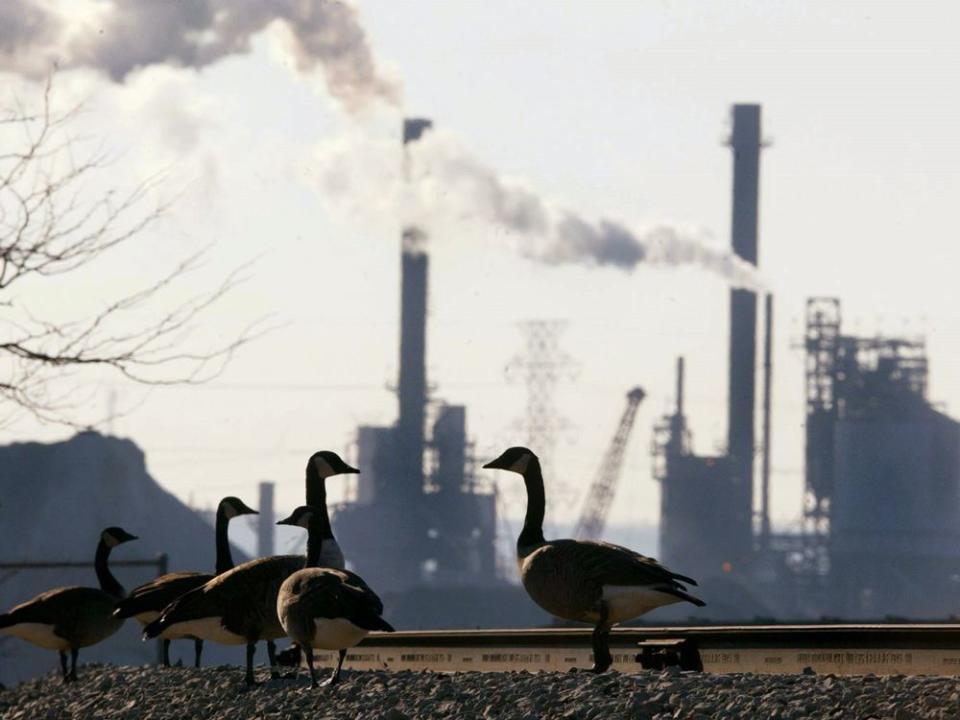Philip Cross: More frequent emissions stats not needed

The CBC continues to fulfill its self-assigned mandate of providing a welcoming platform for left-wing views and projects. Rob Smith, a former Statcan colleague of mine as Director of Environmental Statistics, was given a free ride on last week’s edition of CBC Radio One’s “What On Earth” while arguing greenhouse gas (GHG) emissions data should be published more frequently than once a year, just as economic statistics for inflation, unemployment and GDP appear monthly or quarterly.
There are several things wrong with this argument. To start with, long-run trends in GHG emissions are all that matter. Sub-annual fluctuations mostly reflect unusual weather or economic shocks such as the pandemic’s onset in 2020, not the structural shift of our society to a less carbon-intensive footing. Global emission targets are made on an annual basis and projected decades into the future for good reason.
Conversely, short-term fluctuations in the economy are important for investors and policy-makers. Not quite real-time data on the economic collapse in the spring of 2020 helped inform policy decisions, as did monthly data on the recent surge in inflation. Policy-makers have the tools to change short-term economic outcomes and should not wait quarters or years to know what is happening to the economy. On the other hand, structural shifts in emissions take a long time to develop and they’re all the matters for climate change policy.
Second, it is meaningless to produce Canada’s emissions data without putting them in the context of global emissions. Canada reducing its emissions has little impact on global warming unless emissions fall worldwide. This country only produces 1.5 per cent of global emissions, rendering the close monitoring of our emissions almost irrelevant. By, contrast the ten largest countries account for two-thirds of all emissions. To slow climate change, emissions must fall in as China, the U.S., India and other big countries.
It’s also important to understand that Statcan is not the only source of data on GHG emissions. Environment and Climate Change Canada also produces an annual count of our emissions. It differs slightly from Statcan’s estimate because of differences in whether airplane emissions are allocated to the country from which the plane originates or the countries it passes through. Such questions preoccupy government statisticians.
Philip Cross: De-carbonize production not consumption of fossil fuels
Philip Cross: Liberals, NDP have no answer for inflation — luckily the bank finally does
Perhaps if the federal government had a whole department devoted to inflation — call it Inflation and Price Change Canada — the recent surge in inflation could have been avoided. Of course, such an organization already exists on paper. The Bank of Canada’s sole purpose is keeping inflation in check. One possible reason it lost control of inflation was distraction by issues outside its mandate, including climate change. Quarterly data on emissions would risk further distracting the bank from its only purpose.
Rob Smith holds up Europe as an example of the virtues of publishing quarterly emissions data. In reality, Europe serves as a warning of the pitfalls of focusing too much on emissions and not enough on secure and inexpensive energy sources. With natural gas in short supply as winter approaches, European countries are reopening coal-fired generating plants that were shuttered in the rush to convert to renewable (but non-nuclear) energy sources. The folly of Germany’s relying wholly on Russia for its natural gas by refusing to build LNG terminals to import from more reliable sources, now plain to all, was partly motivated by its determination to shun fossil fuel infrastructure — though it never explained why pipeline infrastructure was OK. European energy policy risks a calamitous outcome this winter because it over-emphasized environmental concerns at the expense of economic and national security considerations. If, as proponents claim, more emissions data raises environmental consciousness, then Europe serves as a sobering example that focusing exclusively on the environment can harm society without having any real impact on global climate change.
At bottom, the only reason for publishing more frequent emissions statistics is to draw even more attention to climate change. That’s certainly not necessary. It may not even be possible given the media’s existing obsession with matters climate. Every day, the headlines scream how this summer’s hot weather is de facto evidence of climate calamity. More statistics from a minor emitter like Canada will not change consciousness in any material way. Statcan’s limited resources would better be used for more accurate economic statistics. Inflation, the number one concern of Canadians today, would be a good place to start; for example, Statcan only recently started surveying used car prices, a deficiency in the data that materially underestimated inflation.
Measuring something less frequently does not mean “those things don’t matter,” as Smith claims. Many important phenomena are measured exclusively on an annual basis because sub-annual trends are usually either inconsequential or potentially misleading. Examples include data on crime, hospital waiting lists, access to Internet, and how we live as families. The only change we need to emissions data is to make it compulsory to place their trend in the context of global emissions.
Philip Cross, formerly chief economic analyst at Statistics Canada, is a senior fellow at the Macdonald-Laurier Institute.

 Yahoo Finance
Yahoo Finance 